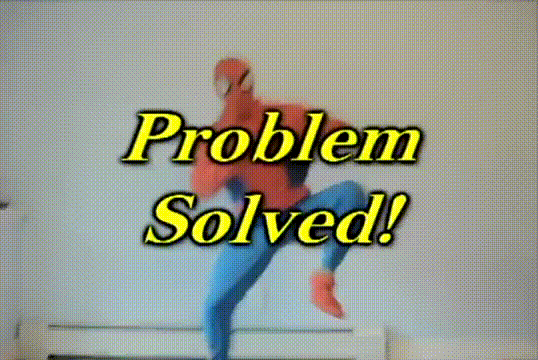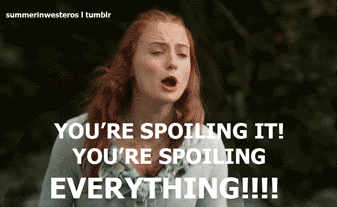This year is probably the year I most noticed by study interfering with my reading. I was just so busy and so tired that I went for huge stretches where I'd only read comics or watch TV shows in my spare time. Still, while it maybe wasn't a spectacular year for a blogger it was a damn sight better than most people.
But first the December stats.
BOOKS:
DECEMBER:
What I Read:
*Hawkeye: L.A Woman (3) - Matt Fraction
*The Martian - Andy Weir
*Outlander: Cross Stitch - Diana Gabaldon
*My Friend Dahmer - Derf Backderf
Book Stats:
75% male / 25% female
100% American / 0% International
25% ebook / 25% audiobook / 50% physical
75% fiction / 25% non-fiction
50% graphic novels / 50% novels
What? How did I only read 4 books? Four books which I'm almost certain I mostly read in the last 4-5 days? I actually thought I'd nailed it again after a successful November but I must have been busier than I thought! On the plus side, all four books were great. I really enjoyed all of them and for the most part they were completely unchartered territory for me. After my first attempt at listening to The Martian I didn't think I'd be able to go back to it in this format, but the reader eventually won me over. My Friend Dahmer was a Christmas present and I don't think I'd ever seen this book before, or if I had I hadn't noticed it. And Outlander. This wasn't a book I really expected to like but I was curious enough to give it a shot (being a free book on Netgalley also helped). So yeah, successful final reads for the year!
2014:
What I read:
Number of books read: 39
Number of comics read:39
Number of pages read: 18380
Longest book read: The Goldfinch by Donna Tartt (771 pages)
Book Stats:
71% male / 29% female
67% American/ 33% International
84% fiction/ 16% non-fiction
50% graphic novels / 50% novels
Breaking my reading down into stats is something I only started this year so I've never broken my full year down like this before. I knew my percentage of lady writers would be down, but what's interesting is that the majority of fiction books I read (53%) either revolved around a female centric cast (think How to Build a Girl or Boy, Snow, Bird) or had a female primary protagonist (think Wonder Woman or Rat Queens). So my interests clearly lean me towards books about women but they're often written by men. I think it might have been my comics that skewed this percentage the most, which is an interesting occurrence on its own. I guess the boys club mentality still hasn't truly been broken through. I'd like to say that next year I'll try and read more books by women and international authors, but to be honest I tend to pick books up on a whim so I don't know if actively trying to change my stats will really work. I'm definitely going to try and buy more diversely though. When and if I read those books in anything resembling a timely matter is a completely different story though.
How did everyone else go with their reading this year? Hitting the usual highs or experiencing some road blocks? Any book resolutions for the new year or are you as lazy and ill prepared as me?
LIFE:
2014 was a busy year. I kept working on my PhD but I also made trips to the US (well, finished a trip to the US) and Japan and spent a week back home for my birthday and best friend's wedding. I hosted costume parties and movie nights and we played a tonne of boardgames. I nursed hang overs and went on road trips up the coast and Tom and I finally bought a new adult couch (i.e. not one that was 10th hand) and mattress for our bed. Lots of change but lots of progress. Wider picture wise it wasn't as great a year. There have been far too many accidents and atrocities and human rights violations across the globe. But I dunno, maybe I'm being crazy optimistic but it feels like the tide is changing. It isn't quite as easy to be a racist or sexist or homophobe and expect to get away with it. The hostage situation in Sydney the other week was a great example of that. While some people began to blame an entire group of people for the action of a single mentally ill man, the majority started the #Illridewithyou campaign and made an effort to prove that Australia is the multicultural country we say we are. Baby steps, sure, but baby steps are better than hiding our heads in the sand.
LIFE:
2014 was a busy year. I kept working on my PhD but I also made trips to the US (well, finished a trip to the US) and Japan and spent a week back home for my birthday and best friend's wedding. I hosted costume parties and movie nights and we played a tonne of boardgames. I nursed hang overs and went on road trips up the coast and Tom and I finally bought a new adult couch (i.e. not one that was 10th hand) and mattress for our bed. Lots of change but lots of progress. Wider picture wise it wasn't as great a year. There have been far too many accidents and atrocities and human rights violations across the globe. But I dunno, maybe I'm being crazy optimistic but it feels like the tide is changing. It isn't quite as easy to be a racist or sexist or homophobe and expect to get away with it. The hostage situation in Sydney the other week was a great example of that. While some people began to blame an entire group of people for the action of a single mentally ill man, the majority started the #Illridewithyou campaign and made an effort to prove that Australia is the multicultural country we say we are. Baby steps, sure, but baby steps are better than hiding our heads in the sand.
 |
| In front of a Kabuki theatre in Tokyo March 2014. |
































